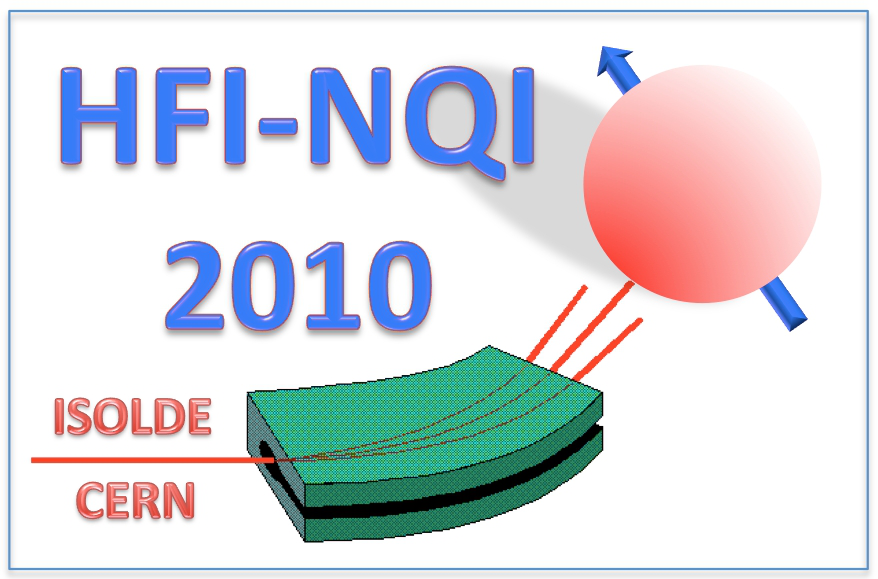Speakers
Ms
Katrin Koch
(Instituut voor Kern- en Stralingsfysica, KULeuven, Max Planck Institute for Chemical Physics of Solids, Dresden, Germany)Mr
Stefaan Cottenier
(Center for Molecular Modeling -- Universiteit Gent)
Description
A series expansion of the interaction between a nucleus and its surrounding electron distribution provides terms that are well-known in the study of hyperfine interactions: the familiar quadrupole interaction and the less familiar hexadecapole interaction. If the penetration of electrons into the nucleus is taken into account, various corrections to these multipole interactions appear. The best known correction is a scalar term related to the isotope shift and the isomer shift. This contribution discusses a related tensor correction, which modifies the quadrupole interaction if electrons penetrate the nucleus: the quadrupole shift. We describe the mathematical formalism and provide first-principles calculations of the quadrupole shift for a large set of solids. Fully relativistic calculations that explicitly take a finite nucleus into account turn out to be mandatory. Our analysis shows that the quadrupole shift becomes appreciably large for heavy elements. Implications for experimental high-precision studies of quadrupole interactions and quadrupole moment ratios are discussed. This contribution brings alive the results that are reported in Ref. [1], updated with very recent experimental follow-up work [2]. References [1] K. Koch, K. Koepernik, D. Van Neck, H. Rosner, S. Cottenier, Physical Review A 81 (2010) 032507, [2] D. Dewald, J. Grabow, in preparation
| Are you a student, a delegate from developing countries or a participant with physical needs and would like to apply for a sponsored accomodation. Please answer with yes or no. | no |
|---|---|
| Please specify whether you would prefer an oral or poster contribution. | oral |
Primary authors
Ms
Katrin Koch
(Instituut voor Kern- en Stralingsfysica, KULeuven, Max Planck Institute for Chemical Physics of Solids, Dresden, Germany)
Mr
Stefaan Cottenier
(Center for Molecular Modeling -- Universiteit Gent)
Co-authors
Prof.
Dimitri Van Neck
(Center for Molecular Modeling -- Universiteit Gent)
Dr
Helge Rosner
(Max Planck Institute for Chemical Physics of Solids)
Dr
Klaus Koepernik
(IFW Dresden -- Institute for Solid State Research)




